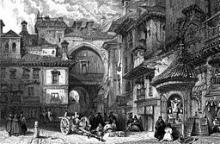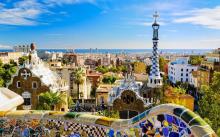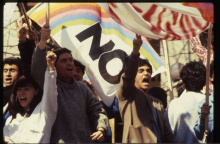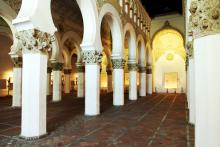This Winter Quarter a number of interesting courses are offered in the Department of Spanish & Portuguese Studies. Some of these classes are special topics that may only be offered once, while others are offered by the department on a rotational basis. The list below is a summary of some the featured classes we will be offering. For information regarding applicability of a given course for the Spanish major or minor, consult the Winter Quarter 2017 Time Schedule or email the SPS Academic Advisor.
SPAN 305: Spanish Literature 1498 to 1681 - Otherness in the Sixteenth Century

Literature and other modes of cultural production in early modern Spain are frequently marked by representations of difference. Tensions based in ethnicity, wealth, and gender drive narrative conflicts that are often never fully resolved. Taken collectively, the readings for this class will help to illuminate the complex social divisions at work in this pivotal moment in Spanish history. Genres to be covered will include the novela morisca, the novela picaresca, the crónica de indias, and a selection of lyric poetry from the period.
Professor: Donald Gilbert-Santamaría T Th, 1:30-2:50, 3 credits. Course Taught in Spanish.
SPAN 335 / CMS 320 B: Barcelona, Inside and Out!

Professor: Leigh Mercer: T Th, 11:30-1:20, 5 credits. Jointly Offered with the Department of Comparative Literature, Cinema and Media. Course Taught in English.
SPAN 395: Special Topics in Latin American Literature - The Battle of Chile: Literature and Culture during and after Pinochet's Dictatorship

This course is devoted to exploring poetry, chronicles, novels, short stories, and films produced in Chile under Pinochet's dictatorship (1973-1990) and after the return to democracy. How did the works from the totalitarian period represent dictatorship, and how did authors from democracy reflect on this period? These questions will guide our discussion and will help us to discover the ways in which literature and other arts thought about this period of trauma and change.
Professor: José Francisco Robles M W, 1:30-2:50, 3 credits. Course Taught in Spanish.
SPAN 407 / SPLING 407: Billinguaism: Made in USA
SPAN 407 introduces students to the study of bilingualism, focusing on Spanish/English bilingualism in the US. It explores bilingualism as both an individual and social phenomenon, and aims to raise students’ awareness about its benefits as well as complexities.
Professor: Ana Fernández Dobao T Th, 11:30-1:20, 5 credits. Course Taught in Spanish.
SPAN 460 / JSIS C 460: Sephardic Culture

Professor: Ana Gómez-Bravo T Th 9:30-11:30, 5 credits. Jointly Offered with the Jackson School of International Studies. Course Taught in English.
SPAN 476: Contemporary Latin American Poetry
SPAN 476 es un curso dedicado a la poesía hispanoamericana del siglo XX, sus principales corrientes y representantes. El punto de partida es la vanguardia, a partir de la cual se despliega una lengua poética que ha de dejar atrás, co-mo al cangrejo, a la narrativa del continente, preocupada todavía por el eterno reflejo de la realidad y la función "social" de la novela. Las poéticas de Vallejo, Neruda y Huidobro estaban cavando en el silencio. Y hallaron los metales de su hermosura.
Professor: Edgar O'Hara M W 11:30-11:20, 5 credits. Course Taught in Spanish.
Additional content for this article provided by Donald Gilbert-Santamaría, Leigh Mercer, José Francisco Robles, Ana Fernández Dobao, Ana Gomez-Bravo and Edgar O'Hara.
